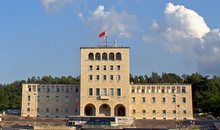
 Flash News
Flash News
Fire in Lura, flames endanger the National Park
International drug search: 36-year-old arrested in Durrës (NAME)
Veliaj's appeal to be heard today in the High Court
Today's hearing at the Fier Court, Salianji requests conditional release
Taxi collides with truck on Lezhë-Shkodër axis, driver taken to Trauma in serious condition
EC: The glorification of war criminals in Serbia continues without consequences
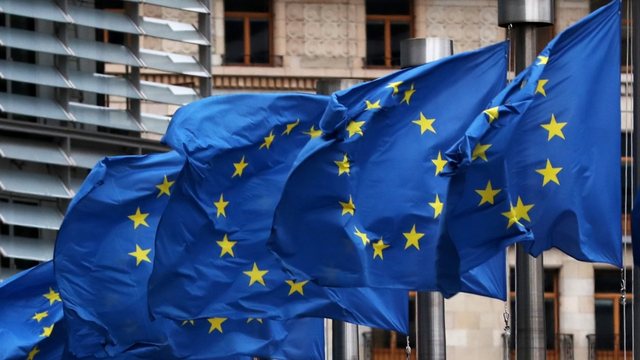
The European Commission, through a non-paper sent to the EU member states regarding Serbia's fulfillment of the criteria for chapters 23 and 24 of the membership negotiations, has pointed out that at higher levels, in Serbia, criminals continue to be glorified without consequences. prisoners of war and they are given public and political space.
These two chapters include the rule of law and fundamental rights. The fulfillment of the transitional criteria within chapters 23 and 24 are prerequisites for Serbia to close any other chapter in the negotiation process, therefore, it is regularly reported on the progress made in their fulfillment.
In this report, it is concluded that Serbia has taken some steps to meet the criteria, but it is emphasized that there is still work to be done to create the political will to deepen the reforms, to address the deficiencies in key areas such as the judiciary, the fight against corruption and organized crime. , freedom of the media and the prosecution of war crimes cases.
Recalling Serbia's obligations to cooperate on war crimes with the International Mechanism for Criminal Tribunals in The Hague, after this mechanism has taken over the continuation of some trials by the Tribunal for War Crimes in the former Yugoslavia, the report said that Serbia has not full cooperation with this court. In particular, the report pointed out that there is a lack of cooperation in cases of arrests of persons accused of obstruction of justice. Also, it was mentioned that Serbian officials often question the decisions of the court in The Hague for war crimes and glorify criminals convicted of war crimes.
"A number of political party figures in Serbia, including at the level of ministers, continue to provide support and public space for convicted war criminals. Convicted war criminals continue to spread hate speech in the public space. "Certain politicians continue to deny the genocide in Srebrenica, without consequence," the report said.
During the Srebrenica genocide in Bosnia and Herzegovina in 1995, Serb soldiers and police killed more than 8,000 Muslim men and boys and buried their bodies in mass graves. This event has been described as the worst atrocity in Europe since the end of the Second World War, and the International Court of The Hague has recognized it as genocide.
The European Commission's report also mentioned Serbia's cooperation with neighboring countries in cases of war crimes and the exchange of certain evidence. It was said there that the cooperation with Croatia and Kosovo has not brought the right results.
The report emphasized that Serbia has failed to include financial compensation for victims of war crimes in criminal proceedings.
"Civilian victims of war and abuses of their rights remain neglected in political, social and economic terms. The dynamics of the trial of war crimes cases in Serbia has slowed down significantly in recent years. A real commitment to address these cases, including high-ranking suspects, must be ensured," the report said./ REL
Latest news


Fire in Lura, flames endanger the National Park
2025-07-08 10:53:43
Trump warns of 35% tariffs on Serbia and 30% on Bosnia and Herzegovina
2025-07-08 10:37:32
Thethi rooster and the dung cock
2025-07-08 10:24:01

Fire in Dukat endangers Llogara National Park
2025-07-08 10:01:39
International drug search: 36-year-old arrested in Durrës (NAME)
2025-07-08 09:50:48
Thethi, tourists "criticize" modern trend
2025-07-08 09:39:54
Fire on Mount Dukat still active, Llogara National Park at risk
2025-07-08 09:28:12
Veliaj's appeal to be heard today in the High Court
2025-07-08 09:16:02
"Bad sign for democracy"/ Parliament neglects reporting by institutions
2025-07-08 09:04:56
Today's hearing at the Fier Court, Salianji requests conditional release
2025-07-08 08:56:39
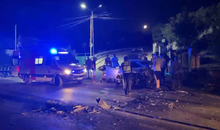

Horoscope, what do the stars have in store for you today?
2025-07-08 08:16:19
Weather forecast/ How temperatures will vary throughout the day
2025-07-08 08:02:37
Morning Post/ In 2 lines: What mattered yesterday in Albania
2025-07-08 07:48:30





Marrëdhënia që s’është romancë, por s’është as thjesht kolegiale
2025-07-07 21:39:13
Citizen is asked to pay 2.5 million for a non-existent meter
2025-07-07 21:28:03




What is the ideal air conditioner temperature in summer?
2025-07-07 20:53:46
GJKKO left him in prison, Meta appeals the decision
2025-07-07 20:38:05
Where is Ronaldo after missing Diogo Jota's funeral?
2025-07-07 20:38:04

Messages from the author who killed Ilaria Sulla in Rome are revealed
2025-07-07 20:20:12
At least 91 dead in Texas floods
2025-07-07 20:12:02
Elbasan, choked by smoke, scorched by conscience
2025-07-07 19:48:16

Swarm of bees attacks citizens in France, 24 people end up in hospital
2025-07-07 19:32:03
Dementia/Hearing loss may be a warning sign
2025-07-07 19:13:06
The decision for Malltez, Gjokutaj: Boomerang for SPAK and the Court
2025-07-07 19:01:08

Former Supreme Court member acquitted of asset concealment
2025-07-07 18:36:40

WIIW expert in Politiko: Brain drain is steadily weakening the Albanian economy
2025-07-07 18:11:41
Heart health is at risk from extreme heat, here's what you should be careful of
2025-07-07 18:10:18
Today Gert Bogdani would celebrate, Edlira Çepani's touching dedication
2025-07-07 17:40:45






The striker severely accuses the Fenerbahce club: They tried to drug me
2025-07-07 16:21:03
A decomposed body is found in Kolonjë, initial suspicions
2025-07-07 16:03:31
Accident in Saranda, car hits motorcycle, one injured
2025-07-07 15:58:56

The most fertile age for men and women
2025-07-07 15:40:52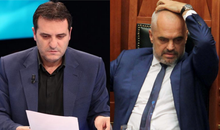
Locals, Rama candidate in 5 municipalities
2025-07-07 15:32:22
Blushi: Meta's criminal kidnapping, incomparable even to Navalny's in Russia
2025-07-07 15:20:34
Meet the iPhone 17 Pro, the main innovations in design and technology
2025-07-07 15:09:09
Why the release of Abi Malltez does not free him; much less Albania
2025-07-07 15:00:12
‘Lidhjet klienteliste’ të mjekëve mbushin recetat e pacientëve
2025-07-07 14:57:33
Poland imposes border controls with Germany and Lithuania
2025-07-07 14:48:15

Caught transporting firearms from Kosovo to Albania, young man arrested (NAME)
2025-07-07 14:37:47
Theo Hernandez flies to Saudi Arabia for medical check-ups
2025-07-07 14:26:47


Scorching heat, Greece orders mandatory work holidays
2025-07-07 13:54:25


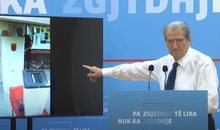

Trump expects Netanyahu to discuss Gaza ceasefire
2025-07-07 12:54:27
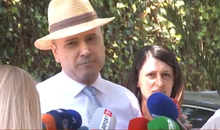
GJKKO releases Jamarbër Malltezi from house arrest
2025-07-07 12:35:02
Tourism among contrasts
2025-07-07 12:31:01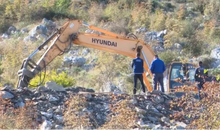
IKMT action in Theth, starts demolition of unauthorized constructions
2025-07-07 12:24:18
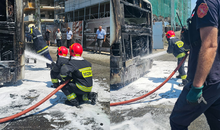
The Tirana-Kamëz line is destroyed by urban fire
2025-07-07 12:00:24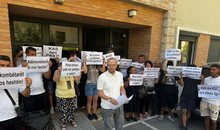


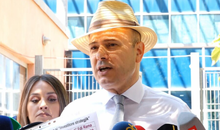

Poor direction!
2025-07-07 11:16:01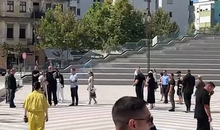


Rama to gather the country's mayors on July 9
2025-07-07 10:43:31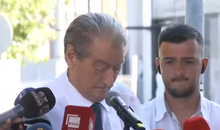
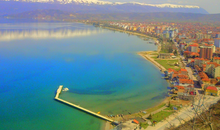
Ohrid Natural Park on the way to UNESCO's "black list"
2025-07-07 10:25:58

Registrations for the new school year begin in e-Albania
2025-07-07 09:59:09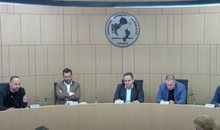
KAS decides the "fate" of the elections in four districts of the country today
2025-07-07 09:50:51
Rama does not give up on Vlora, visits the municipality again
2025-07-07 09:39:11
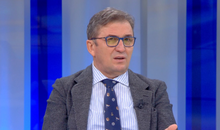

Fires in Gjirokastra, flames very close to cultural monuments
2025-07-07 09:12:49

Foreign exchange, the rate at which foreign currencies are sold and bought
2025-07-07 08:39:57

